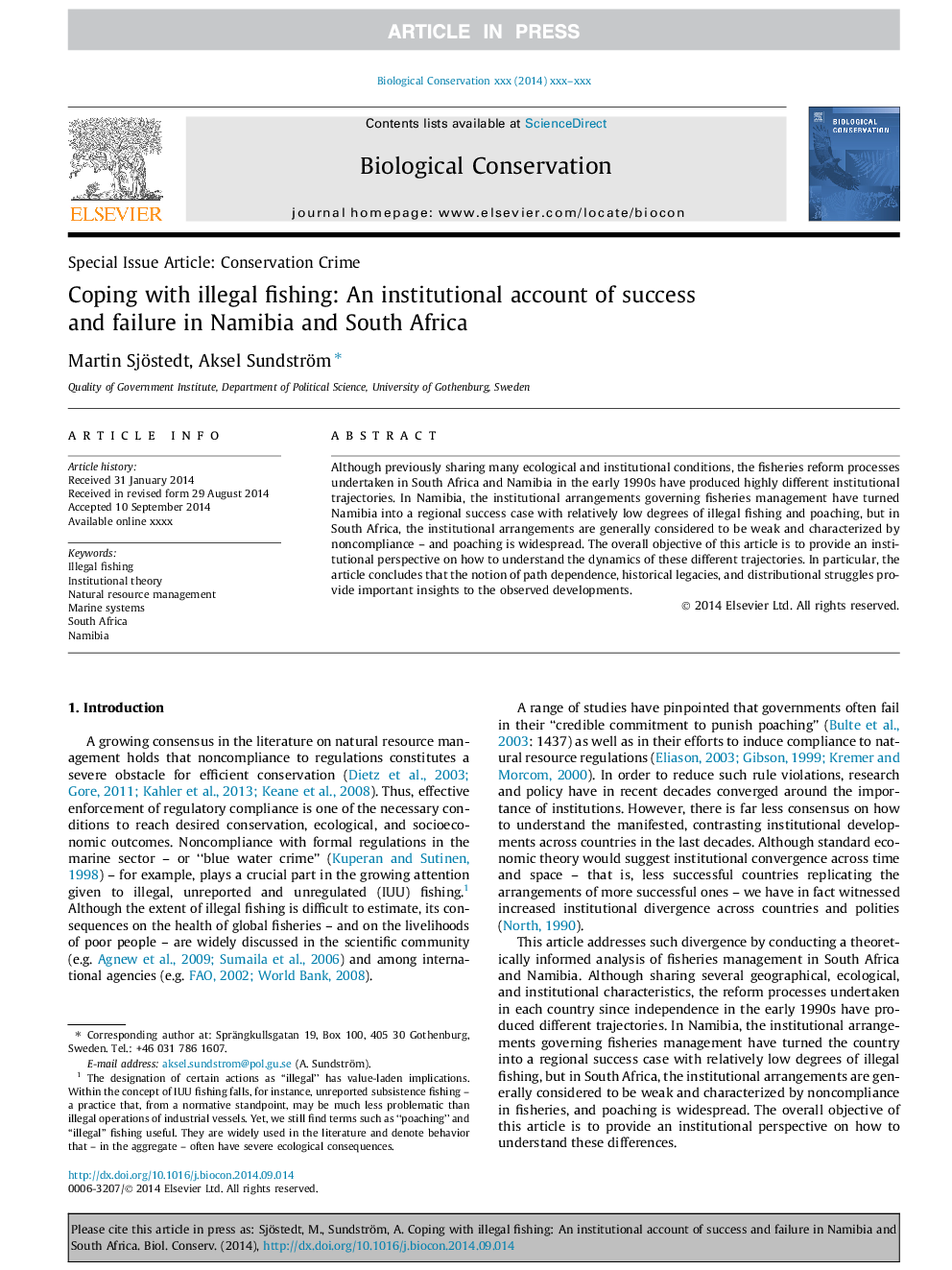| Article ID | Journal | Published Year | Pages | File Type |
|---|---|---|---|---|
| 6299168 | Biological Conservation | 2015 | 8 Pages |
Abstract
Although previously sharing many ecological and institutional conditions, the fisheries reform processes undertaken in South Africa and Namibia in the early 1990s have produced highly different institutional trajectories. In Namibia, the institutional arrangements governing fisheries management have turned Namibia into a regional success case with relatively low degrees of illegal fishing and poaching, but in South Africa, the institutional arrangements are generally considered to be weak and characterized by noncompliance - and poaching is widespread. The overall objective of this article is to provide an institutional perspective on how to understand the dynamics of these different trajectories. In particular, the article concludes that the notion of path dependence, historical legacies, and distributional struggles provide important insights to the observed developments.
Keywords
Related Topics
Life Sciences
Agricultural and Biological Sciences
Ecology, Evolution, Behavior and Systematics
Authors
Martin Sjöstedt, Aksel Sundström,
